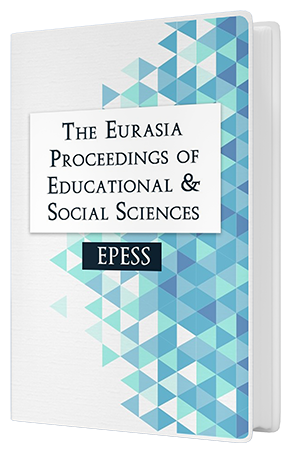PERCEPTIONS OF PEDAGOGICAL AFFORDANCE OF SMART MOBILE TECHNOLOGY
Keywords:
Faculty perception, smart mobile devices, mLearning, affordance, self-efficacyAbstract
Smart mobile devices are becoming ubiquitous among educators and students in Palestine. Mobile devices can be used to provide learning that is contextualized, personalized and unrestricted by location and time. Although these device capabilities are available, many faculty in higher education are not effectively incorporating this technology into their teaching. This study therefore examined academics’ perceptions of the value of integrating mobile devices into their teaching activities. A questionnaire survey collected data from 56 academic staff of the Palestine Technical University - Kadoorie, eliciting perceptions of the pedagogical affordance of mobile devices and challenges to their use in teaching. The findings show that participants were still at the stage of actively experimenting with smartphones and iPads, trialing their use at different levels and for different purposes. In general, although participants were unaware of the full potential of their functionalities, they viewed positively the various pedagogical affordances of integrating these devices into their teaching activities. The most important affordances were linking formal and informal learning spaces by providing anywhere-anytime learning opportunities, and developing interest in the subject matter, thus making learning more enjoyable, meaningful, and accessible. The results also identify various challenges including lack of experience and knowledge, finding the time to design and implement such integration, and selecting appropriate apps for the content being taught. Participants also expressed concerns with the limited connectivity and unreliability of Wi-Fi and 3G/4G networks in Palestine.Downloads
Published
Issue
Section
License
Copyright (c) 2015 The Eurasia Proceedings of Educational and Social Sciences

This work is licensed under a Creative Commons Attribution-NonCommercial-ShareAlike 4.0 International License.
The articles may be used for research, teaching, and private study purposes. Any substantial or systematic reproduction, redistribution, reselling, loan, sub-licensing, systematic supply, or distribution in any form to anyone is expressly forbidden. Authors alone are responsible for the contents of their articles. The journal owns the copyright of the articles. The publisher shall not be liable for any loss, actions, claims, proceedings, demand, or costs or damages whatsoever or howsoever caused arising directly or indirectly in connection with or arising out of the use of the research material. All authors are requested to disclose any actual or potential conflict of interest including any financial, personal or other relationships with other people or organizations regarding the submitted work.




